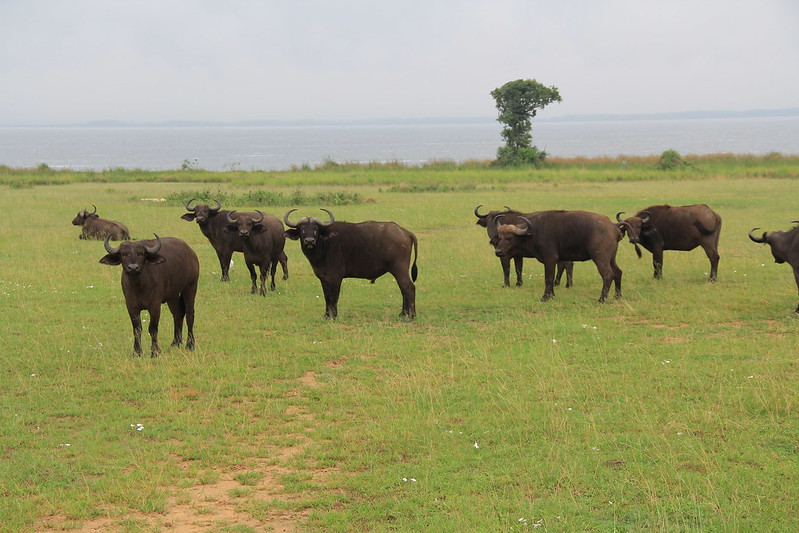The Ultimate Guide to Packing for a Safari
Overview
The Ultimate Guide to Packing for a Safari. Packing for a safari requires careful consideration to ensure you have everything you need while avoiding unnecessary items. The right gear and clothing can significantly enhance your safari experience, allowing you to stay comfortable and prepared for a variety of conditions. This ultimate guide will walk you through the essential items to pack for your safari adventure, including clothing, gear, and personal items.
1. Clothing Essentials
Lightweight and Breathable Fabrics: Opt for lightweight, breathable fabrics such as cotton or moisture-wicking materials. Safari destinations can experience fluctuating temperatures, so layering is key. Pack long-sleeve shirts and lightweight trousers to protect against sun and insects.
Neutral Colors: Choose clothing in neutral colors like khaki, beige, and olive. These colors are less likely to attract insects and help you blend into the natural environment, making wildlife encounters more enjoyable.
Warm Layers: Depending on the season and location, temperatures can drop significantly, especially in the mornings and evenings. Include a fleece jacket or warm sweater and a lightweight rain jacket for unexpected weather.
Hat and Sunglasses: Protect yourself from the sun with a wide-brimmed hat and UV-protection sunglasses. These will help shield your face and eyes from the intense sunlight often encountered during game drives.
2. Footwear
Sturdy Walking Shoes: Invest in a pair of sturdy, comfortable walking shoes or hiking boots. These are essential for game drives, bush walks, and uneven terrain. Ensure they are well-broken-in to avoid discomfort.
Casual Footwear: Pack a pair of sandals or flip-flops for relaxing at your lodge or camp. These are useful for lounging and can be easily removed when entering your accommodation.
3. Gear and Equipment
Camera and Binoculars: A good-quality camera with a zoom lens is crucial for capturing wildlife moments. Bring spare batteries and memory cards. Binoculars are also essential for spotting animals from a distance and enhancing your game viewing experience.
Flashlight or Headlamp: A flashlight or headlamp is useful for navigating around your lodge or camp after dark. Ensure you pack extra batteries for reliable lighting throughout your trip.
Daypack: A small daypack is handy for carrying personal items such as water, snacks, sunscreen, and a camera during game drives and excursions.
4. Health and Personal Care
Insect Repellent: Insect repellent with DEET is important for protecting yourself from mosquito bites and other insects. Apply it regularly, especially during early morning and late evening outings.
Sunscreen and Lip Balm: High-SPF sunscreen and moisturizing lip balm are essential for protecting your skin from the sun. Reapply sunscreen frequently, particularly during long periods in the sun.
First Aid Kit: A basic first aid kit should include items such as band-aids, antiseptic wipes, pain relievers, and any personal medications you may need. It’s also wise to include any prescription medications and a few over-the-counter remedies for common ailments.
5. Personal Items and Documents
Travel Documents: Keep your passport, visas, and any necessary travel documents in a secure, easily accessible place. Make photocopies of these documents and store them separately in case of loss or theft.
Money and Cards: Bring a mix of cash and credit/debit cards for transactions. Local currency may be required for small purchases and tips, while credit cards are widely accepted in most lodges and camps.
Reusable Water Bottle: Staying hydrated is crucial, so pack a reusable water bottle to carry water with you during excursions. Many lodges provide filtered water, and carrying your bottle helps reduce plastic waste.
6. What to Leave Behind
Bright and Flashy Clothing: Avoid packing bright or flashy clothing that can attract unwanted attention from insects and disturb wildlife.
Excessive Jewelry and Valuables: Leave expensive jewelry and valuables at home. Focus on packing functional items and keep valuables secure.
Large Amounts of Luggage: Aim to pack efficiently and avoid bringing large amounts of luggage. Most safari operators have luggage weight restrictions, and compact, well-organized packing makes travel easier.
Conclusion
Proper packing is essential for a successful and enjoyable safari experience. By bringing the right clothing, gear, and personal items, you’ll be well-prepared for the diverse conditions and activities that await you. Use this guide to ensure you pack effectively and focus on enjoying your safari adventure to the fullest. With the right preparation, you can immerse yourself in the beauty of East Africa and create unforgettable memories.




